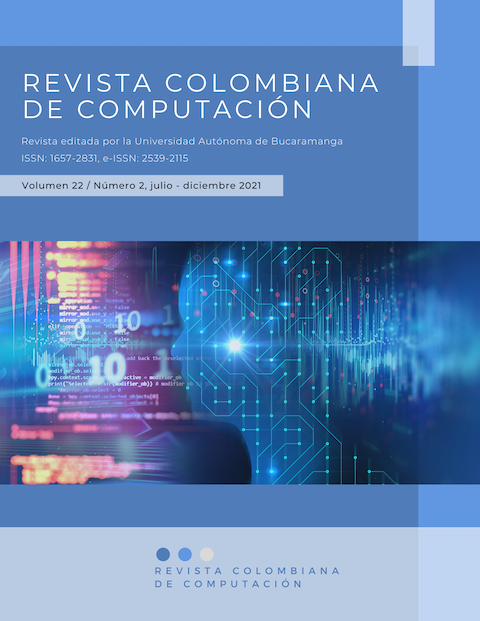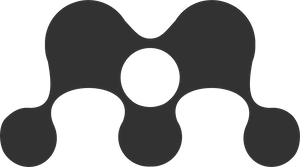Optimización del consumo eléctrico mediante la heurística cúmulo de partículas
Resumen
En el presente trabajo se da una breve explicación de la técnica de optimización por cúmulo de partículas para ser implementada como parte de la búsqueda del estado óptimo de consumo de un conjunto de dispositivos. Los dispositivos de uso doméstico, en conjunto, permiten caracterizar el consumo eléctrico de una casa habitación a través del comportamiento de uso. Cada uno de los dispositivos presenta un comportamiento de consumo. El objetivo de la optimización se refleja en la función objetivo, la cual es definida de acuerdo con el propósito general de implementación. Los datos de consumo de los dispositivos eléctricos son almacenados en vectores de consumo-hora, donde cada una de las posiciones corresponde al consumo generado por un dispositivo en una hora determinada. Cada uno de los vectores es usado por la heurística como un vector de referencia durante la búsqueda para encontrar el vector que cumple con la función objetivo.
Referencias bibliográficas
Barbato, A., Capone, A., Carello, G., Delfanti, M., Falabretti, D., & Merlo, M. (2014). A framework for home energy management and its experimental validation. Energy Efficiency, 7(6). https://doi.org/10.1007/s12053-014-9269-3
Blecic, I., Cecchini, A., & Trunfio, G. A. (2007). A decision support tool coupling a causal model and a multi-objective genetic algorithm. Applied Intelligence, 26(2). https://doi.org/10.1007/s10489-006-0009-z
Chen, S., Liu, T., Gao, F., Ji, J., Xu, Z., Qian, B., Wu, H., & Guan, X. (2017). Butler, Not Servant: A Human-Centric Smart Home Energy Management System. IEEE Communications Magazine, 55(2). https://doi.org/10.1109/MCOM.2017.1600699CM
Clerc, M., & Kennedy, J. (2002). The particle swarm - explosion, stability, and convergence in a multidimensional complex space. IEEE Transactions on Evolutionary Computation, 6(1). https://doi.org/10.1109/4235.985692
Emara, H. M., & Abdel Fattah, H. A. (2004). Continuous swarm optimization technique with stability analysis. Proceedings of the 2004 American Control Conference, 2811–2817. https://doi.org/10.23919/ACC.2004.1383892
Hao, Y., Wang, W., & Qi, Y. (2017, October). Optimal home energy management with PV system in time of use tariff environment. 2017 Chinese Automation Congress (CAC). https://doi.org/10.1109/CAC.2017.8243232
Huang, Y., Tian, H., & Wang, L. (2015). Demand response for home energy management system. International Journal of Electrical Power & Energy Systems, 73. https://doi.org/10.1016/j.ijepes.2015.05.032
Javaid, N., Hussain, S., Ullah, I., Noor, M., Abdul, W., Almogren, A., & Alamri, A. (2017). Demand Side Management in Nearly Zero Energy Buildings Using Heuristic Optimizations. Energies, 10(8). https://doi.org/10.3390/en10081131
Javaid, N., Naseem, M., Rasheed, M. B., Mahmood, D., Khan, S. A., Alrajeh, N., & Iqbal, Z. (2017). A new heuristically optimized Home Energy Management controller for smart grid. Sustainable Cities and Society, 34. https://doi.org/10.1016/j.scs.2017.06.009
Jiang, M., Luo, Y. P., & Yang, S. Y. (2007). Stochastic convergence analysis and parameter selection of the standard particle swarm optimization algorithm. Information Processing Letters, 102(1). https://doi.org/10.1016/j.ipl.2006.10.005
Kadirkamanathan, V., Selvarajah, K., & Fleming, P. J. (2006). Stability analysis of the particle dynamics in particle swarm optimizer. IEEE Transactions on Evolutionary Computation, 10(3), 245–255. https://doi.org/10.1109/TEVC.2005.857077
Kakran, S., & Chanana, S. (2018). Energy Scheduling of Smart Appliances at Home under the Effect of Dynamic Pricing Schemes and Small Renewable Energy Source. International Journal of Emerging Electric Power Systems, 19(2). https://doi.org/10.1515/ijeeps-2017-0187
Kennedy, J., & Eberhart, R. (1995). Particle swarm optimization. Proceedings of ICNN’95 - International Conference on Neural Networks. https://doi.org/10.1109/ICNN.1995.488968
Kim, D. H., & Shin, S. (2006). Self-organization of Decentralized Swarm Agents Based on Modified Particle Swarm Algorithm. Journal of Intelligent and Robotic Systems, 46(2). https://doi.org/10.1007/s10846-006-9047-3
Lotfi, J., Abdi, F., & Abbou, M. F. (2017, November). Smart Home Energy System Modeling and Implementation. 2017 European Conference on Electrical Engineering and Computer Science (EECS). https://doi.org/10.1109/EECS.2017.80
Muhammad Mohsin, S., Javaid, N., Madani, S. A., Abbas, S. K., Akber, S. M. A., & Khan, Z. A. (2018, May). Appliance Scheduling in Smart Homes with Harmony Search Algorithm for Different Operation Time Intervals. 2018 32nd International Conference on Advanced Information Networking and Applications Workshops (WAINA). https://doi.org/10.1109/WAINA.2018.00063
Nadeem, Z., Javaid, N., Malik, A., & Iqbal, S. (2018). Scheduling Appliances with GA, TLBO, FA, OSR and Their Hybrids Using Chance Constrained Optimization for Smart Homes. Energies, 11(4). https://doi.org/10.3390/en11040888
Rahim, S., Javaid, N., Ahmad, A., Khan, S. A., Khan, Z. A., Alrajeh, N., & Qasim, U. (2016). Exploiting heuristic algorithms to efficiently utilize energy management controllers with renewable energy sources. Energy and Buildings, 129. https://doi.org/10.1016/j.enbuild.2016.08.008
Rasheed, M., Javaid, N., Awais, M., Khan, Z., Qasim, U., Alrajeh, N., Iqbal, Z., & Javaid, Q. (2016). Real Time Information Based Energy Management Using Customer Preferences and Dynamic Pricing in Smart Homes. Energies, 9(7). https://doi.org/10.3390/en9070542
Sun, X., Ji, S., & Wen, C. (2017, October). An optimized scheduling strategy for smart home users under the limitation of daily electric charge. 2017 Chinese Automation Congress (CAC). https://doi.org/10.1109/CAC.2017.8244020
Tan, X., Shan, B., Hu, Z., & Wu, S. (2012, June). Study on demand side management decision supporting system. 2012 IEEE International Conference on Computer Science and Automation Engineering. https://doi.org/10.1109/ICSESS.2012.6269417
Trelea, I. C. (2003). The particle swarm optimization algorithm: convergence analysis and parameter selection. Information Processing Letters, 85(6). https://doi.org/10.1016/S0020-0190(02)00447-7
van den Bergh, F., & Engelbrecht, A. P. (2006). A study of particle swarm optimization particle trajectories. Information Sciences, 176(8). https://doi.org/10.1016/j.ins.2005.02.003
Yao, L., Shen, J.-Y., & Lim, W. H. (2016, December). Real-Time Energy Management Optimization for Smart Household. 2016 IEEE International Conference on Internet of Things (IThings) and IEEE Green Computing and Communications (GreenCom) and IEEE Cyber, Physical and Social Computing (CPSCom) and IEEE Smart Data (SmartData). https://doi.org/10.1109/iThings-GreenCom-CPSCom-SmartData.2016.31
Zeng, W., Zhang, Y., & Yan, L. (2010, October). Mechanism of Particle Swarm Optimization and Analysis on Its Convergence. 2010 Third International Symposium on Information Processing. https://doi.org/10.1109/ISIP.2010.46
Zhigang Lian, Fan Zhu, Zailin Guan, & Xinyu Shao. (2008). The analysis of particle swarm optimization algorithm’s convergence. 2008 7th World Congress on Intelligent Control and Automation. https://doi.org/10.1109/WCICA.2008.4592994
Zhou, B., Li, W., Chan, K. W., Cao, Y., Kuang, Y., Liu, X., & Wang, X. (2016). Smart home energy management systems: Concept, configurations, and scheduling strategies. Renewable and Sustainable Energy Reviews, 61. https://doi.org/10.1016/j.rser.2016.03.047
Descargas












